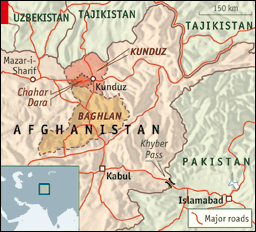
The arrested commanders of Tehrik-e-Taliban Pakistan have confessed that secret departments of India, including RAW, and Afghanistan have been providing them weapons and funds to fight against the Pakistan Army.
A report here on Saturday submitted to high officials by a joint investigation team said that 23 most wanted militant commanders including Sim Khan, Mahmood Khan and Maulvi
 Umer who were captured during operation Rah-e-Rast have confessed that they had been provided financial aid, weapons and special training by secret
Umer who were captured during operation Rah-e-Rast have confessed that they had been provided financial aid, weapons and special training by secret  agencies from India and Afghanistan to fight against Pakistan’s security forces.
agencies from India and Afghanistan to fight against Pakistan’s security forces.The report also divulged that some militants received special war training from Afghanistan and secret agencies of two other neighbouring countries also supported them in the plan.

It was said in the report that secret agencies from India were in contact with militants in Jalalabad, Kandahar and Mazar Sharif and the militants went to their collaborators via secret ways where they were invited to feasts and they were provided weapons and money earned by the narcotics trade.

Many arrested militant commanders have reportedly been shifted to secret locations for further investigations.
Read the full story here.
Comments
Post a Comment
Thanks for leaving comments. You are making this discussion richer and more beneficial to everyone. Do not hold back.